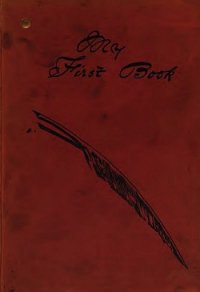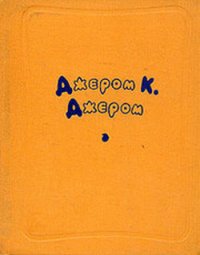Three Men on the Bummel - Jerome Jerome Klapka (лучшие бесплатные книги .TXT) 📗
An American friend of mine, a cultured gentleman, who loved poetry well enough for its own sake, told me that he had obtained a more correct and more satisfying idea of the Lake district from an eighteenpenny book of photographic views than from all the works of Coleridge, Southey, and Wordsworth put together. I also remember his saying concerning this subject of scenery in literature, that he would thank an author as much for writing an eloquent description of what he had just had for dinner. But this was in reference to another argument; namely, the proper province of each art. My friend maintained that just as canvas and colour were the wrong mediums for story telling, so word-painting was, at its best, but a clumsy method of conveying impressions that could much better be received through the eye.
As regards the question, there also lingers in my memory very distinctly a hot school afternoon. The class was for English literature, and the proceedings commenced with the reading of a certain lengthy, but otherwise unobjectionable, poem. The author's name, I am ashamed to say, I have forgotten, together with the title of the poem. The reading finished, we closed our books, and the Professor, a kindly, white-haired old gentleman, suggested our giving in our own words an account of what we had just read.
"Tell me," said the Professor, encouragingly, "what it is all about."
"Please, sir," said the first boy-he spoke with bowed head and evident reluctance, as though the subject were one which, left to himself, he would never have mentioned,-"it is about a maiden."
"Yes," agreed the Professor; "but I want you to tell me in your own words. We do not speak of a maiden, you know; we say a girl. Yes, it is about a girl. Go on."
"A girl," repeated the top boy, the substitution apparently increasing his embarrassment, "who lived in a wood."
"What sort of a wood?" asked the Professor.
The first boy examined his inkpot carefully, and then looked at the ceiling.
"Come," urged the Professor, growing impatient, "you have been reading about this wood for the last ten minutes. Surely you can tell me something concerning it."
"The gnarly trees, their twisted branches"-recommenced the top boy.
"No, no," interrupted the Professor; "I do not want you to repeat the poem. I want you to tell me in your own words what sort of a wood it was where the girl lived."
The Professor tapped his foot impatiently; the top boy made a dash for it.
"Please, sir, it was the usual sort of a wood."
"Tell him what sort of a wood," said he, pointing to the second lad.
The second boy said it was a "green wood." This annoyed the Professor still more; he called the second boy a blockhead, though really I cannot see why, and passed on to the third, who, for the last minute, had been sitting apparently on hot plates, with his right arm waving up and down like a distracted semaphore signal. He would have had to say it the next second, whether the Professor had asked him or not; he was red in the face, holding his knowledge in.
"A dark and gloomy wood," shouted the third boy, with much relief to his feelings.
"A dark and gloomy wood," repeated the Professor, with evident approval. "And why was it dark and gloomy?"
The third boy was still equal to the occasion.
"Because the sun could not get inside it."
The Professor felt he had discovered the poet of the class.
"Because the sun could not get into it, or, better, because the sunbeams could not penetrate. And why could not the sunbeams penetrate there?"
"Please, sir, because the leaves were too thick."
"Very well," said the Professor. "The girl lived in a dark and gloomy wood, through the leafy canopy of which the sunbeams were unable to pierce. Now, what grew in this wood?" He pointed to the fourth boy.
"Please, sir, trees, sir."
"And what else?"
"Toadstools, sir." This after a pause.
The Professor was not quite sure about the toadstools, but on referring to the text he found that the boy was right; toadstools had been mentioned.
"Quite right," admitted the Professor, "toadstools grew there. And what else? What do you find underneath trees in a wood?"
"Please, sir, earth, sir."
"No; no; what grows in a wood besides trees?"
"Oh, please, sir, bushes, sir."
"Bushes; very good. Now we are getting on. In this wood there were trees and bushes. And what else?"
He pointed to a small boy near the bottom, who having decided that the wood was too far off to be of any annoyance to him, individually, was occupying his leisure playing noughts and crosses against himself. Vexed and bewildered, but feeling it necessary to add something to the inventory, he hazarded blackberries. This was a mistake; the poet had not mentioned blackberries.
"Of course, Klobstock would think of something to eat," commented the Professor, who prided himself on his ready wit. This raised a laugh against Klobstock, and pleased the Professor.
"You," continued he, pointing to a boy in the middle; "what else was there in this wood besides trees and bushes?"
"Please, sir, there was a torrent there."
"Quite right; and what did the torrent do?"
"Please, sir, it gurgled."
"No; no. Streams gurgle, torrents-?"
"Roar, sir."
"It roared. And what made it roar?"
This was a poser. One boy-he was not our prize intellect, I admit-suggested the girl. To help us the Professor put his question in another form:
"When did it roar?"
Our third boy, again coming to the rescue, explained that it roared when it fell down among the rocks. I think some of us had a vague idea that it must have been a cowardly torrent to make such a noise about a little thing like this; a pluckier torrent, we felt, would have got up and gone on, saying nothing about it. A torrent that roared every time it fell upon a rock we deemed a poor spirited torrent; but the Professor seemed quite content with it.
"And what lived in this wood beside the girl?" was the next question.
"Please, sir, birds, sir."
"Yes, birds lived in this wood. What else?"
Birds seemed to have exhausted our ideas.
"Come," said the Professor, "what are those animals with tails, that run up trees?"
We thought for a while, then one of us suggested cats.
This was an error; the poet had said nothing about cats; squirrels was what the Professor was trying to get.
I do not recall much more about this wood in detail. I only recollect that the sky was introduced into it. In places where there occurred an opening among the trees you could by looking up see the sky above you; very often there were clouds in this sky, and occasionally, if I remember rightly, the girl got wet.
I have dwelt upon this incident, because it seems to me suggestive of the whole question of scenery in literature. I could not at the time, I cannot now, understand why the top boy's summary was not sufficient. With all due deference to the poet, whoever he may have been, one cannot but acknowledge that his wood was, and could not be otherwise than, "the usual sort of a wood."
I could describe the Black Forest to you at great length. I could translate to you Hebel, the poet of the Black Forest. I could write pages concerning its rocky gorges and its smiling valleys, its pine-clad slopes, its rock-crowned summits, its foaming rivulets (where the tidy German has not condemned them to flow respectably through wooden troughs or drainpipes), its white villages, its lonely farmsteads.




